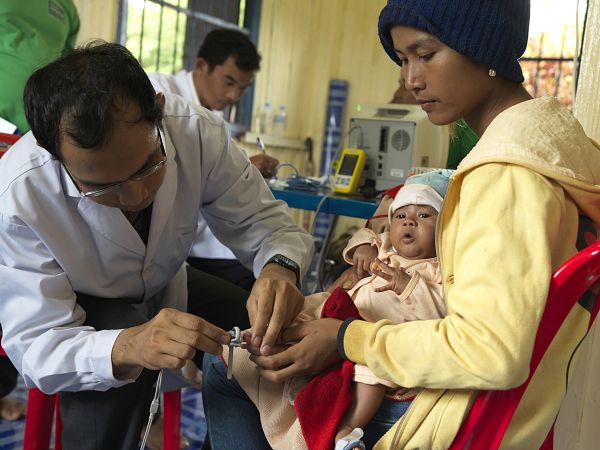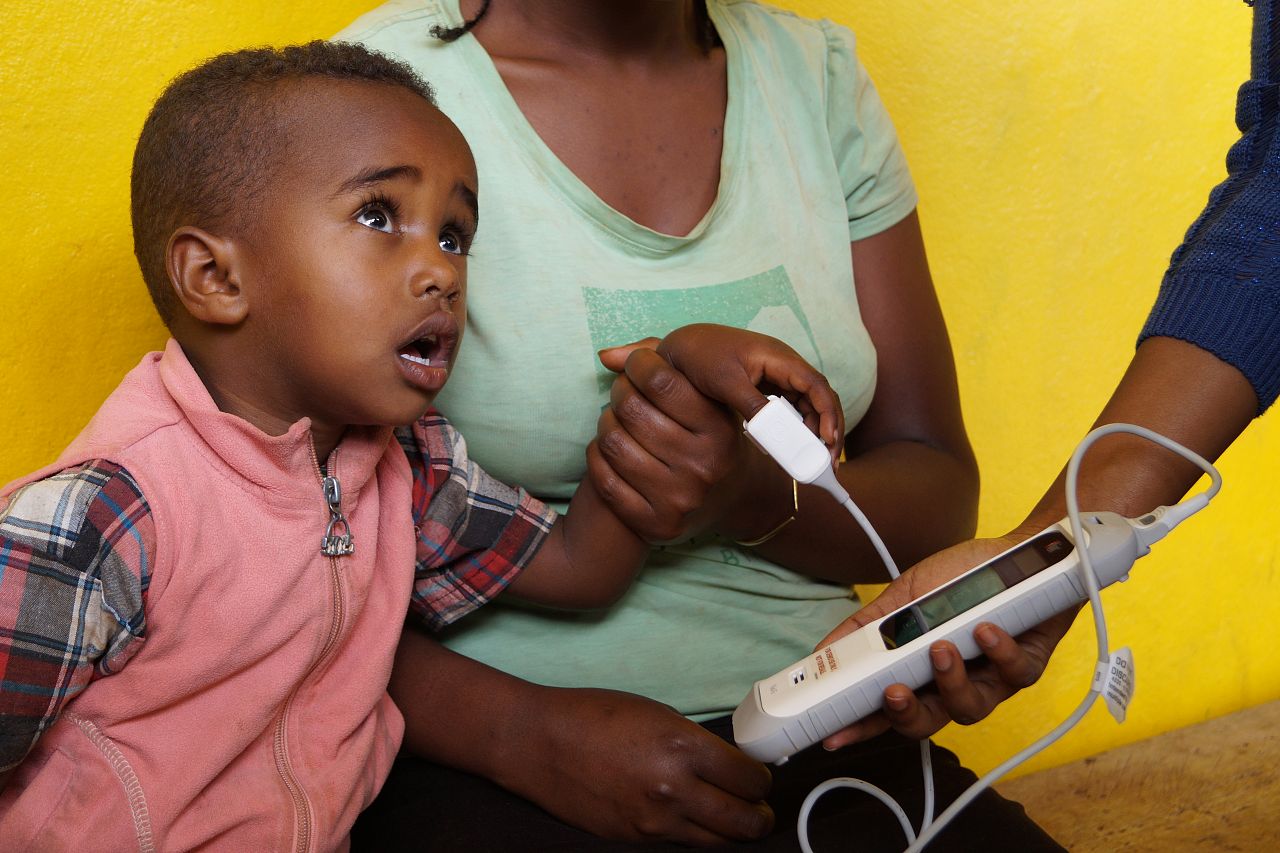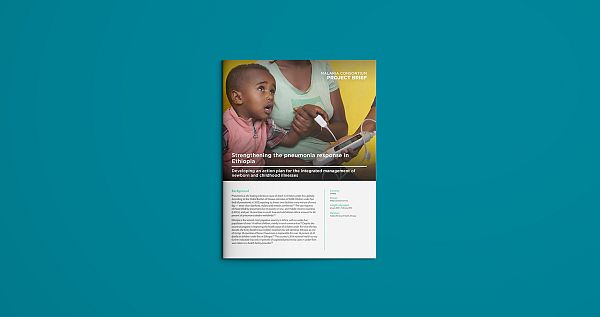Pneumonia
Pneumonia is the leading infectious cause of death in children under-five worldwide, causing an estimated 700,000 deaths in children in 2019. Diagnosing pneumonia is difficult and remains largely presumptive. Late or inappropriate treatment due to misdiagnosis is a common factor in the high level of mortality.
Malaria Consortium works across South Asia and sub-Saharan Africa, where pneumonia is most common, seeking to identify the most accurate and acceptable pneumonia diagnostic devices for health workers. We research acceptable, scalable, user-friendly respiratory rate (RR) timers and pulse oximeters for diagnosis of pneumonia symptoms in children with a cough or difficulty breathing and work with governments to develop effective pneumonia control strategies.
We are also a member of Every Breath Counts Coalition (EBCC) – the world’s first public-private partnership to support national governments to end preventable child pneumonia deaths by 2030. A member of EBCC since it was launched, Malaria Consortium also co-chairs its Research Group.

Our publications
Our pneumonia-related publications include journal articles from our cutting-edge operational and implementation research, project briefs, case studies, learning briefs, presentations and capacity statements about digital health and our work with communities and governments from countries affected by pneumonia including Bangladesh, Chad, Cambodia, Myanmar, Nepal, Thailand, Uganda, South Sudan and Ethiopia.
Learn more
Case management research
Malaria Consortium has been at the forefront of pneumonia case management implementation research for 10 years, leading randomised controlled trials with thousands of community health workers and researching the use of technology and innovations in social and behaviour change communication.
In practice: Chad has one of the world’s highest under-five mortality rates, with pneumonia accounting for almost a quarter of these deaths. Drawing on our experience in conducting large-scale studies, Malaria Consortium is developing and operationalising a best-practice national childhood pneumonia strategy to improve pneumonia case management in the country.
Learn more
Digital diagnostics
The key challenge for pneumonia at community and primary health care levels is recognising the severity of pneumonia disease and ensuring rapid referral.
In practice: We studied and developed respiratory rate (RR) counting aids, further strengthened by our experience in supporting integrated community case management, enabling community assessment and treatment for uncomplicated cases.
Learn more
Developing pneumonia control strategies with governments
We support governments to integrate pneumonia and other newborn and childhood illnesses into national strategies to improve child survival rates.
In practice: With the Ministry of Health in Ethiopia, we are developing an action plan for the integrated management of newborn and childhood illnesses – focusing on pneumonia and diarrhoea – to support the newborn and child survival strategy and child health roadmap.
Learn more



